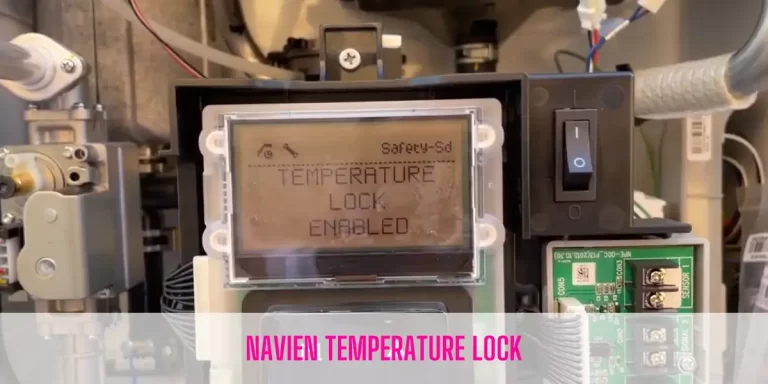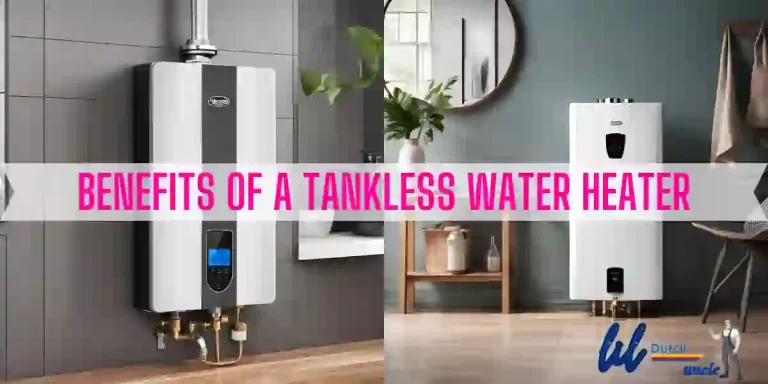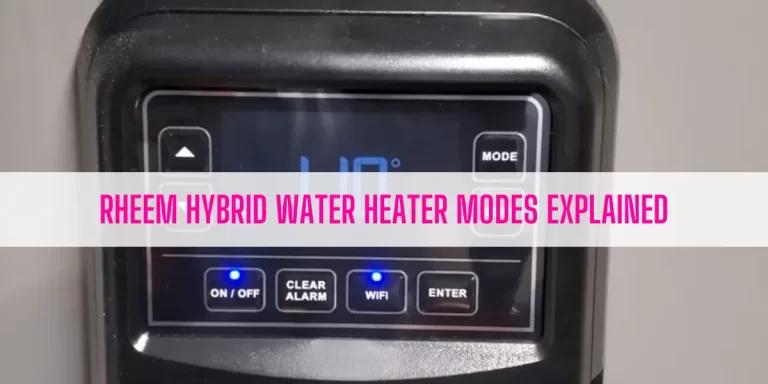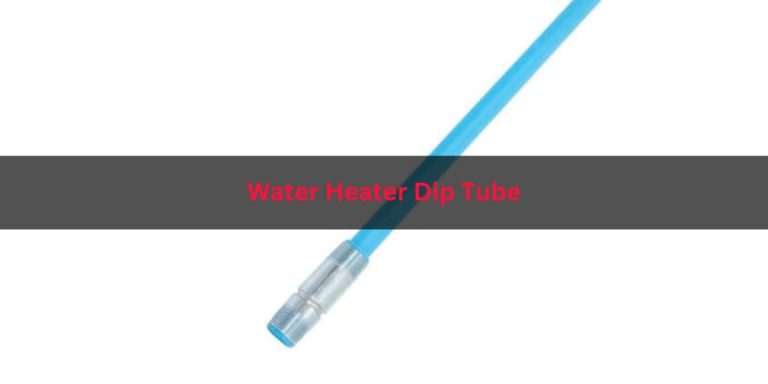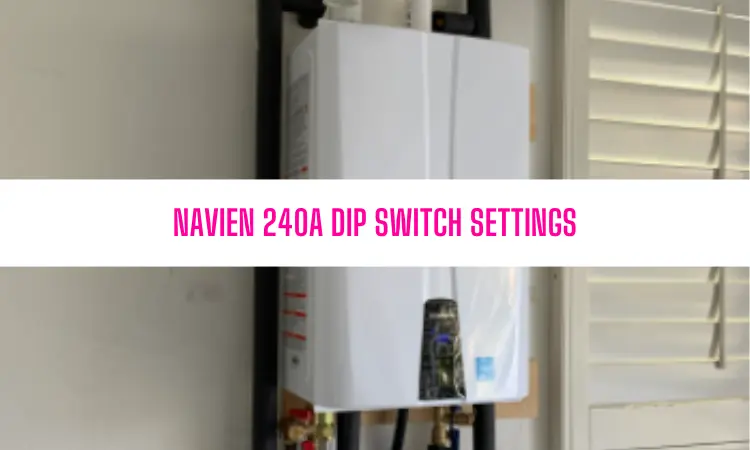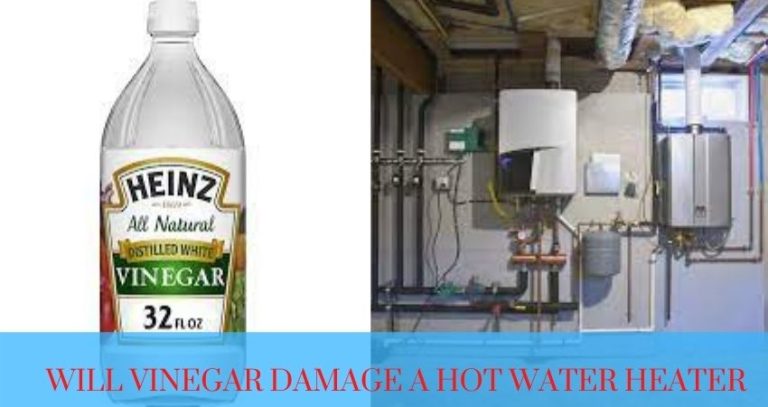Are you tired of unpredictable hot water and high energy bills? It’s time to upgrade your home comfort with the best water heater on the market.
Picture stepping into a warm shower after a long day, knowing your water heater is not only reliable but also energy-efficient. With winter approaching, a dependable hot water source is essential for your family’s comfort and well-being.
The right water heater can transform your routine, providing endless hot water while reducing utility costs.
Whether you prefer the instant performance of a tankless model or the reliability of a traditional storage unit, there’s a perfect fit for every home.
Don’t let another chilly morning surprise you—find the ideal water heater to elevate your home experience today!
Our Top Picks:
- Best Overall: Rinnai RL75eP Tankless Water Heater
- Best For Hard Water: Rheem PROE50 50-gallon Water Heater
- Best Compact: Noritz NRC66DVNG Tankless Water Heater
Table of Contents
What To Consider When Buying A Water Heater For Home?
Here are the criteria you should consider when purchasing a water heater for your home:
Household Size
When it comes to selecting a water heater, the size of your household plays a significant role in determining the right capacity. Here’s a quick reference table to help you choose the right water heater based on your household size:
| Household Size | Recommended Capacity |
| 1 Person | Under 30 gallons |
| 1-2 People | 30-40 gallons |
| Small Family (2-3 People) | 40-50 gallons |
| Medium Family (3-4 People) | 50-60 gallons |
| Large Family (5 or More People) | 60-80 gallons |
It’s also important to consider your household’s hot water habits. For instance, if you frequently run multiple appliances at the same time, you might want to opt for a larger capacity than what the numbers suggest.
Understanding your family’s routines will help you select a water heater that keeps everyone comfortable and happy!
Capacity
Choosing the right size water heater is essential for ensuring your household has enough hot water when you need it.
Capacity refers to how much hot water your home can draw at once, especially during those busy times when everyone seems to need it simultaneously.
If you often find yourself waiting for a shower after someone else has used all the hot water, it might be time to consider a larger tank or even a tankless model that heats water on demand.
Water heaters typically come in various sizes, categorized by their tank capacity in gallons:
- Under 30 gallons: Suitable for one person or very light usage, often found in apartments.
- 30-40 gallons: Ideal for 1-2 people; perfect if you live alone or with a partner.
- 40-50 gallons: A good fit for 2-3 people, handling moderate usage well.
- Over 50 gallons: Best for larger families (5 or more) or homes with multiple bathrooms, ensuring everyone can shower and do laundry without running out of hot water.
To determine the right capacity, consider your peak hour demand, which is the maximum amount of hot water used during the busiest hour of the day.
A handy rule of thumb is about 12 gallons per person. For example, a family of four may need around 48 gallons during peak times. Look for a water heater with a First Hour Rating (FHR) that meets or exceeds this number.
If you’re leaning toward a tankless model, focus on the flow rate—how many gallons per minute (GPM) it can deliver at your desired temperature. You can learn more about the Tankless Water Heater GPM in this article.
Ultimately, selecting the right capacity isn’t just about numbers; it’s about understanding your family’s routines. By matching your household’s needs with the right size water heater, you’ll ensure comfort and avoid those frustrating cold showers!
Energy Efficiency
When it comes to energy efficiency in water heaters, look for models with high Energy Factor (EF) ratings or those that are ENERGY STAR certified. These units may cost more upfront but can save you a bundle on your energy bills over time.
What’s Energy Factor (EF)?
The EF measures how efficiently a water heater uses energy. For example, an EF of 0.90 means 90% of the energy goes into heating water. ENERGY STAR certified heaters typically have an EF of at least 0.82 for gas and 2.0 for electric heat pumps, making them up to four times more efficient than standard electric models.
Cost Savings
While ENERGY STAR models might cost $300 to $1,000 more initially, they can save a household of four around $550 annually on electric bills—adding up to over $5,600 in savings over the unit’s lifetime!
Environmental Impact
Choosing energy-efficient models also helps the planet. If all U.S. water heaters were ENERGY STAR certified, we could save nearly $890 million in energy costs and cut greenhouse gas emissions by 17 billion pounds each year—like taking 1.5 million cars off the road!
Types of Efficient Water Heaters:
- Gas Tankless Models: Use up to 50% less energy than traditional tanks since they heat water on demand.
- Heat Pump Water Heaters: Transfer ambient heat to warm water and can use less than half the energy of conventional electric heaters.
In short, investing in an energy-efficient water heater benefits both your wallet and the environment—definitely a win-win!
Type
Choosing the right water heater involves considering several types, each with its pros and cons:
1. Storage Tank Water Heaters: These traditional units store hot water in a tank and are usually less expensive upfront. However, they take up more space and may not be as energy-efficient since they constantly heat water.
2. Tankless Water Heaters: Great for saving space and energy, tankless models heat water on demand. They can be pricier initially and may struggle to supply multiple outlets at once during peak times.
3. Heat Pump Water Heaters: These use ambient heat to warm water, making them highly energy-efficient—up to 60% less energy than traditional electric heaters. They do require specific conditions to work effectively.
4. Solar Water Heaters: Ideal for eco-conscious homeowners, solar heaters use sunlight to generate hot water. While they can cut energy costs, they depend on sunny weather and may need a backup system.
Each type has unique benefits, so think about your household’s needs and budget. For more details on what might work best for you, check out this detailed guide.
Brand
When selecting a water heater, brand reputation can significantly influence your decision. Here are some top brands known for their reliability and performance:
| Brand | Key Strengths | Why They Stand Out |
| A.O. Smith | High efficiency, longevity | Known for durable products and a wide range of energy-efficient options. Their after-sales service is also highly rated. |
| Rheem | Diverse models, excellent customer service | Offers everything from tank to tankless models, with features like EcoNet™ Wi-Fi connectivity for easy control. |
| Bradford White | Budget-friendly, robust design | Focuses on quality and efficiency, with innovative technologies that combat sediment buildup. |
| Rinnai | High efficiency, great warranties | Best-selling tankless brand in North America, known for energy-efficient models and smart technology integration. |
| Navien | Advanced technology, compact size | Specializes in tankless water heaters with high thermal efficiency and long-lasting warranties. |
Each of these brands has earned a solid reputation for durability and performance, making them ideal choices for anyone in the market for a new water heater.
A.O. Smith is particularly praised for its longevity, while Rheem offers a broad selection to meet various needs. Bradford White balances quality with affordability, and Rinnai is recognized for its innovative tankless solutions. Lastly, Navien stands out with its focus on energy efficiency.
In short, choosing a reputable brand can make a big difference if you ever need repairs or replacements down the line!
Installation Cost and Complexity
When you’re considering a new water heater, don’t overlook the installation costs and complexity. These factors can vary significantly based on the type of water heater you choose and your home’s existing plumbing setup.
Installation Costs: On average, you can expect to pay between $300 and $1,500 for professional installation, depending on the type of heater. For instance, installing a traditional tank water heater typically costs less—around $300 to $800—while tankless models can range from $800 to $1,500 due to their more complex installation requirements.
Time Considerations: The installation time also varies. Installing a traditional tank water heater usually takes about 2 to 4 hours, while tankless systems can take up to 10 hours or more, especially if additional modifications to plumbing or electrical systems are needed. Factors like the accessibility of the installation site and any necessary permits can further impact the timeline.
Complexity Factors: The complexity of installation depends on several elements:
- Type of Heater: Tankless heaters require more intricate venting and electrical connections.
- Home Plumbing: If your existing plumbing isn’t compatible with the new unit, additional modifications may be necessary.
- Space Constraints: Limited space can complicate installations, particularly for larger units or in tight utility closets.
It’s crucial to get quotes from professionals who can assess your specific situation. They’ll help you understand not just the costs but also any potential challenges you might face during installation. This way, you’ll have a clearer picture of what to expect financially and logistically before making your purchase!
Maintenance Requirements
Considering maintenance requirements is crucial when buying a water heater to avoid unexpected costs later on. Here are some key points to keep in mind:
- Annual Flushing: Flushing your water heater at least once a year is essential to remove sediment buildup, especially if you have hard water. This helps maintain performance and prevents corrosion.
- Anode Rod Check: Make it a habit to inspect the anode rod annually. This component protects the tank from rust. If it’s more than 50% corroded, it’s time for a replacement to keep your heater in good shape.
- TPR Valve Testing: Testing the Temperature and Pressure Relief (TPR) valve each year is important for safety. This valve prevents excessive pressure buildup, which can lead to serious issues.
By keeping these maintenance needs in mind, you can ensure your water heater runs efficiently and lasts longer, ultimately saving you money on repairs and energy costs!
3 Best Water Heaters For Home
Here are our top three picks:
Rinnai RL75eP Tankless Water Heater
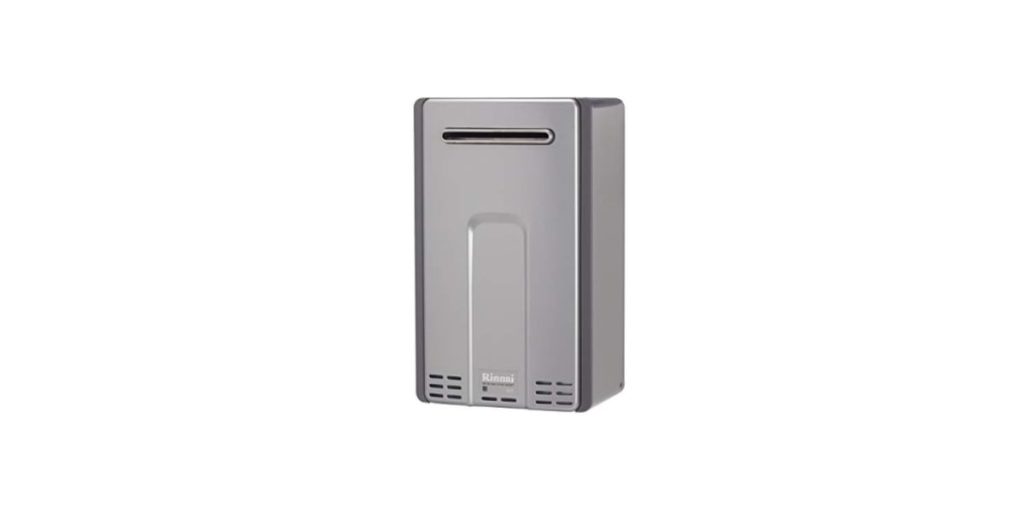
If you’re tired of running out of hot water right in the middle of a shower or having to wait for your tank heater to catch up, let me introduce you to the Rinnai RL75eP Tankless Water Heater—my top pick for the Best Overall tankless water heater.
One of the standout features of this unit is its impressive flow rate of up to 7.5 gallons per minute (GPM). This means you can easily run multiple showers, the dishwasher, and even do laundry at the same time without ever worrying about running out of hot water. Imagine never having to schedule your showers around laundry day again!
What I really love about the RL75eP is its energy efficiency. With a Uniform Energy Factor (UEF) of 0.81, it heats water only when you need it, which can lead to significant savings on your energy bills.
Unlike traditional tank heaters that constantly heat and reheat water, this model is designed to be more efficient, helping you save money in the long run.
Another huge plus is its compact design—it’s about the size of a small suitcase! This makes it perfect for outdoor installations or tight spaces where traditional tanks just won’t fit. You’ll free up valuable space in your home while still enjoying all the hot water you need.
And let’s talk about reliability. Rinnai backs this unit with an outstanding 12-year warranty on the heat exchanger. That’s right—12 years! This level of warranty gives you peace of mind knowing that you’re investing in a durable product that’s built to last.
Plus, with advanced recirculation technology, hot water is always ready when you need it. No more waiting around for the tap to warm up! This feature minimizes wait times and reduces water waste, making it not only convenient but also environmentally friendly.
Pros:
- Endless hot water supply (up to 7.5 GPM)
- High energy efficiency (UEF: 0.81)
- Compact design saves space
- Long lifespan (up to 20 years)
- Excellent warranty coverage (12 years on heat exchanger)
Cons:
- Initial installation might require professional help
- There can be a slight delay in hot water delivery during peak usage
So, if you’re ready to say goodbye to cold showers and hello to endless hot water, I highly recommend considering the Rinnai RL75eP Tankless Water Heater. It’s a game changer for any home! Don’t wait—make the upgrade today and enjoy all the benefits that come with it!
Rheem PROE50 50-Gallon Residential Electric Water Heater
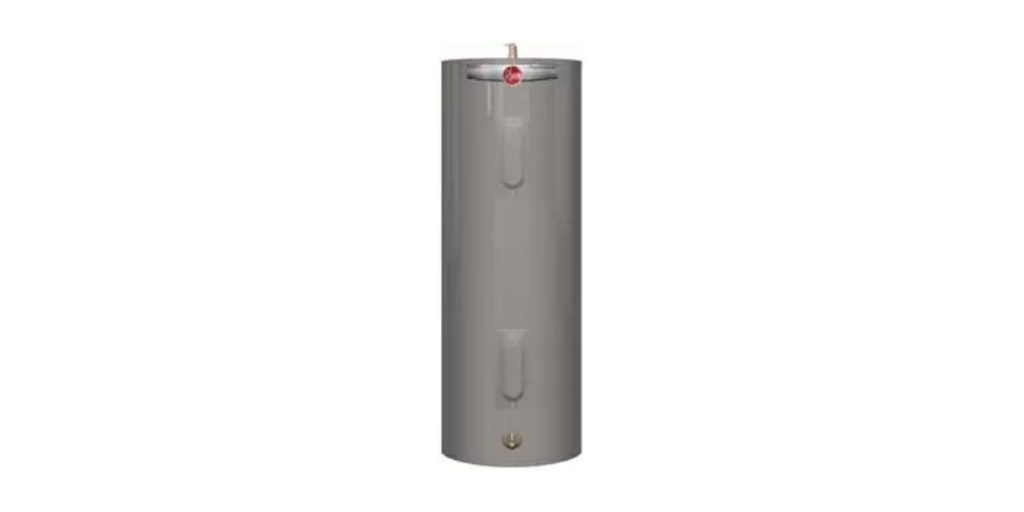
If you live in an area with hard water, the Rheem PROE50 50-Gallon Residential Electric Water Heater is designed to tackle the challenges it poses. Equipped with an aluminum anode rod, it resists corrosion better than traditional magnesium rods, ensuring a longer-lasting tank by minimizing mineral buildup.
With a 50-gallon capacity, it’s ideal for families of 3-5 people or homes with 3+ bathrooms, providing enough hot water for multiple showers, laundry, and baths without running out. Its space-saving design fits into tighter spaces, making it a great option for replacements where room is limited.
The automatic thermostat maintains a consistent water temperature, eliminating the need for manual adjustments, while the enhanced-flow brass drain valve makes maintenance simple.
Safety features, like the temperature and pressure relief valve, help prevent dangerous pressure buildup, and the InfoCue LED indicator provides real-time status updates.
Pros:
- Excellent corrosion resistance in hard water.
- Ample capacity for larger households.
- Compact design for easy installation in smaller spaces.
- Automatic thermostat for consistent hot water.
- Easy maintenance with a brass drain valve.
- Built-in safety features.
Cons:
- Professional installation may be needed.
- Lacks advanced smart features.
In summary, the Rheem PROE50 is a durable, efficient solution for homes with hard water, providing reliable hot water without the worry of mineral damage. Upgrade today for long-lasting comfort and peace of mind.
Noritz NRC66DVNG Tankless Water Heater
The Noritz NRC66DVNG Tankless Water Heater is a compact, high-efficiency solution for homeowners with limited space. It provides endless hot water while taking up far less room than traditional tank models, making it perfect for smaller homes or apartments.
Its sleek design allows it to be installed in tight spots like closets or mounted on walls, freeing up valuable floor space.
With a flow rate of up to 6.6 gallons per minute, this unit can supply hot water to multiple outlets at once, making it ideal for households with high water demands. Its copper heat exchanger enhances efficiency and durability, particularly in hard water areas, reducing the risk of corrosion and costly repairs.
Installation is straightforward, and the natural gas operation offers lower running costs compared to electric models, making it a cost-effective long-term investment.
Pros:
- Compact design for small spaces.
- High flow rate (6.6 GPM) supports multiple outlets.
- Durable construction, ideal for hard water.
- Energy-efficient with lower operating costs.
- Easy installation with minimal modifications.
Cons:
- Higher upfront cost compared to tank heaters.
- Requires a natural gas connection, which may not be available in all homes.
In summary, the Noritz NRC66DVNG offers a reliable, space-saving solution for endless hot water. Upgrade today and enjoy the efficiency and convenience of tankless technology.
Conclusion
In conclusion, choosing the right water heater for your home is not just a matter of convenience; it’s an investment in comfort, efficiency, and peace of mind.
With a variety of options available—from tankless to traditional storage models—there’s a perfect solution tailored to meet your family’s needs and lifestyle. By selecting a high-quality water heater, you can enjoy consistent hot water while also reducing your energy bills and environmental footprint.
Take the time to research and consider factors such as capacity, energy efficiency, and installation requirements to ensure you make an informed decision. Remember, the right water heater can enhance your daily routines and provide lasting benefits for years to come.
Don’t settle for less—upgrade to the best water heater today and experience the difference it can make in your home!

Eric Alvarez is the head of content on LilDutchUncle.Com. He is an HVAC guy based in El Paso, Texas, United States. He obtained his Bachelor of Science degree from the University Of Texas at El Paso. Years of experience in the HVAC field have taught him many lessons, not the least of which is that the value of quality and knowledge far exceeds any promised initial savings. He has a good standing reputation for superior skills in heating, air conditioning, hot water tanks, and indoor air quality systems.
